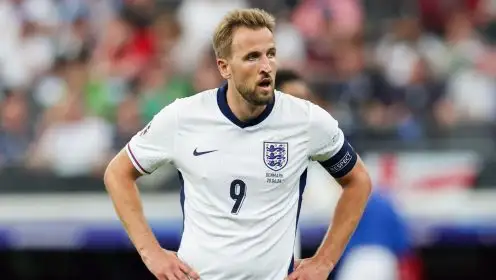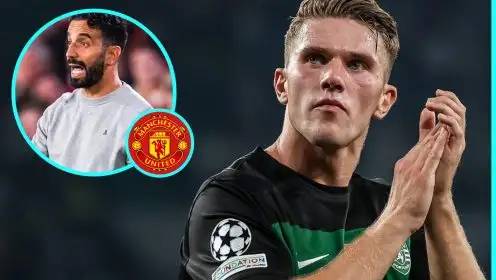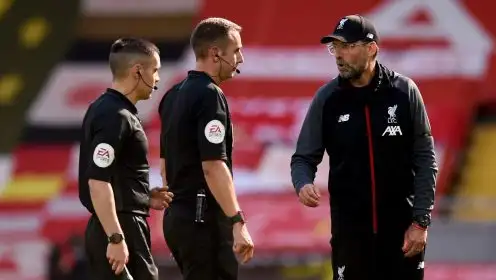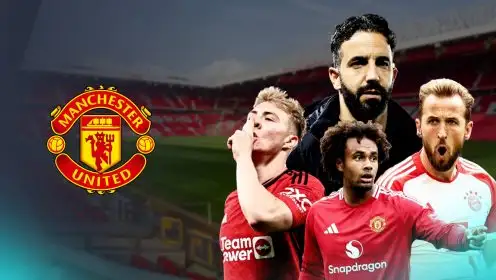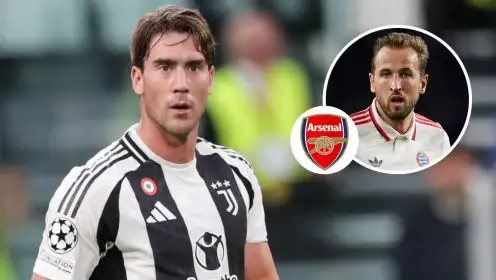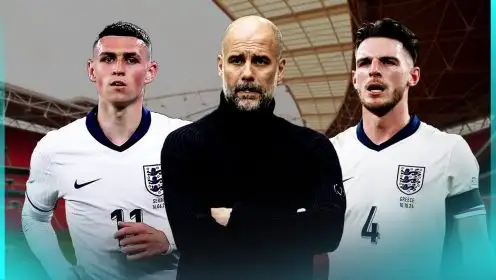Kane to Man Utd reluctance is understandable – but does Spurs’ blanket Big Six transfer ban hold them back?
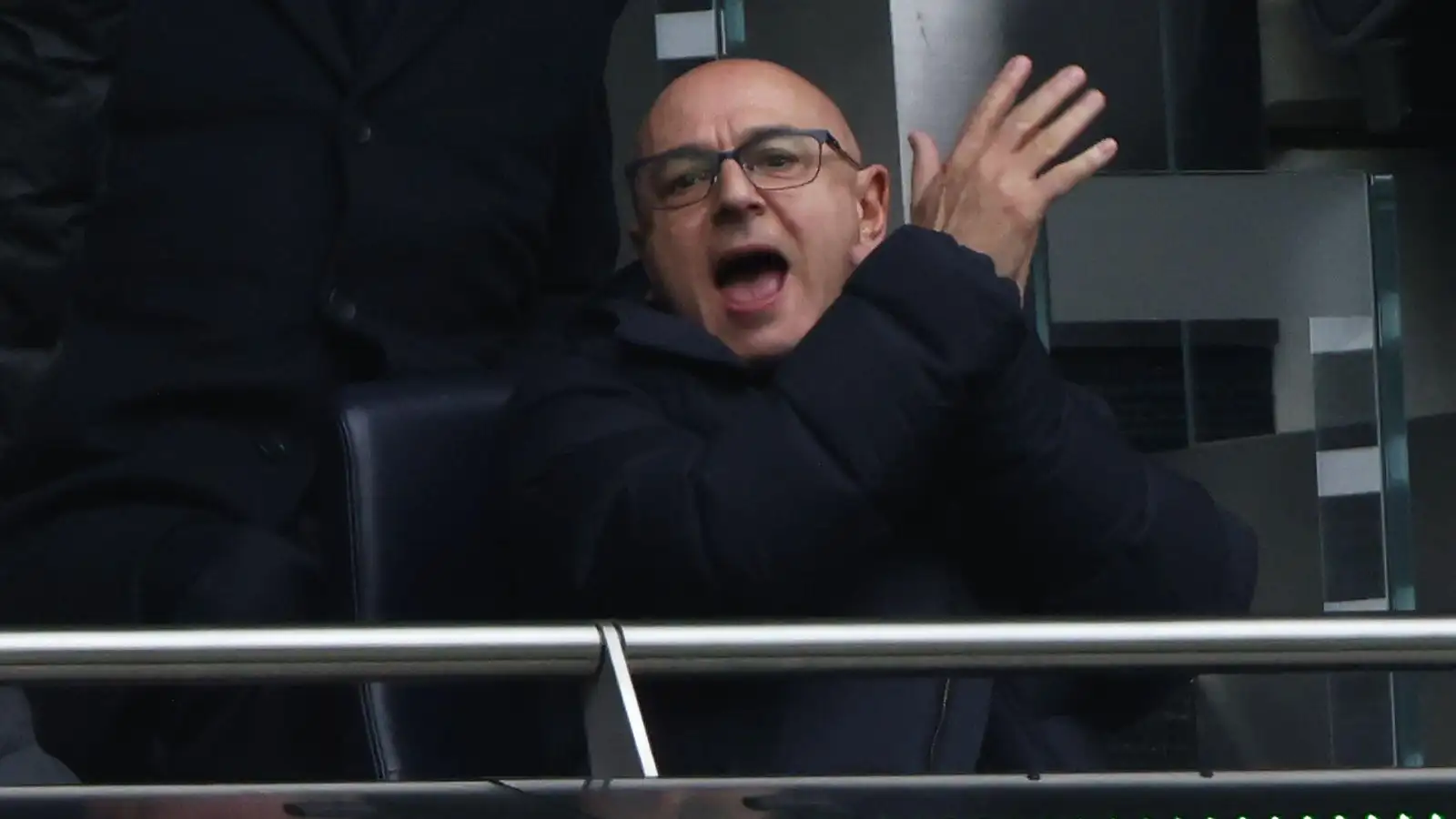
There are lots of words and phrases that spring to mind when talking about Tottenham.
Spursy, obviously. Worra trophy, drought, empty trophy cabinets, banterously. But of all the things written about Spurs over the last 10 years, there is one sentence that has surely been written more often than just about any other.
And it’s this, or some variation thereof: ‘Daniel Levy is unwilling to sell to a direct Premier League rival.’
It’s written a lot because obviously there are lots of transfer stories these days and quite a lot of them are about Spurs, a club perennially trying to hold on to their stars, shift their forest’s worth of deadwood and bring in the shiny new parts for whatever their latest rebuild happens to be under a manager who couldn’t be more wildly different to the last.
It’s also written a lot because it’s enormously true. Daniel Levy is unwilling to sell Spurs players to any club he perceives to be a direct Premier League rival, which over the last decade or so means the So-Called Big Six, doesn’t it?
Since the Big Six became a thing, which we’re going to arbitrarily lock in at 2010, Spurs have done almost no business whatsoever with the other five. This seems on the face of it vaguely sensible and pretty reasonable. But it’s not the norm. The other five trade with each other cheerfully (okay, maybe not always cheerfully) and frequently. Especially Chelsea and Arsenal, who seem to bond over their mutual distaste for all things Spurs and get on famously. As we speak, Arsenal are desperately trying to help their pals out with all that beastly FFP unpleasantness by taking a Kai Havertz off their hands for an absurdly excessive sum of money. It’s what mates do.
Since 2010, there have been 33 direct transfers between Big Six clubs. Spurs have been involved in just three of those deals and all have caveats. They sold Kyle Walker to Manchester City for a fee everyone thought was mad but which turned out to be a bargain. They got William Gallas on a free because Arsenal were desperate to be shot of him, and bought Emmanuel Adebayor from Manchester City after an initial loan spell in a move that had only been rendered acceptable to Spurs fans in the first place by that goal celebration against Arsenal.
Three, though. Three deals. We know why, and we sort of understand it. Levy has, in truth, never entirely got over the sales to Manchester United of Michael Carrick and most importantly Dimitar Berbatov. That transfer still casts a huge shadow over all his dealings – or non-dealings – with the rest of the Big Six.

Having been embarrassed and lost his star striker – significantly in the same window as Robbie Keane’s disastrous move from his boyhood club Spurs to his boyhood club Liverpool – Levy pretty much swore off dealing with the bigger boys.
But is it really a wise policy? For someone who prides himself on his skill at the negotiating table, are these emotionally driven – some would argue petty – red lines really the best thing for him and his club?
Again, going back to the Berbatov transfer, it’s easy to see what hardened Levy to the extent that he can no longer see the quid pro quo of dealing with direct rivals. If you lose a Dimitar Berbatov and get a Fraizer Campbell, you’re not going to be inclined to think this is a good way to operate.
Pragmatically, though, it’s necessary. And all the other clubs in that gang have realised this. Arsenal and Chelsea have each been involved in 16 of those 33 deals as either a buyer or seller, City 14, Liverpool 10 and Manchester United seven.
Not all of those deals were successful, and by no means were the selling club always happy, but overall it’s mutually beneficial to acknowledge the existence of these clubs.
Most prosaically, they are five of the richest football clubs in the world. Cutting out those five significantly weakens your position to demand the highest possible fees. But then there’s the potential to bring players in from those clubs. You don’t need to go back far to see the benefit of having those lines open; Arsenal’s transformation last season doesn’t happen without their Man City cast-offs.
And it’s worth noting that this position is not one Levy adopts only with his very best star players. Desperately trying to keep Harry Kane out of the clutches of the Manchester clubs is one thing; refusing point-blank to entertain offers for Eric Dier quite another.
If the Berbatov transfer is the specific root cause then the wider point is one of fragility and uncertainty.
We’ve said it before, but there should never even have been a Big Six. Spurs had no business being there and among the mockery and the ripping of piss do deserve a modicum of credit for making it so and just about clinging on for over a decade now.
A quirky stat we’ve always rather liked is that since the inception of the Big Six, Spurs have never finished last of that group in the Premier League table. It’s meaningless in one way but so significant in another, because it’s always felt like Spurs are a club desperately trying to cling on to something they don’t even really have. One season finishing sixth of those six and it might all turn to dust.
Even now after a season in which they were largely rubbish but finished miles clear of a cartoonishly terrible Chelsea, it is Spurs’ place among that group that is questioned and threatened. And we all know and can see why.
Chelsea had an absolute disastrous blowout of a season. Long-term, though, they will suffer no consequence. They are insulated from true failure even when things go as badly as it’s possible for them to go. Last season was Chelsea’s worst-case scenario. Spurs fans won’t like it, but their worst-case scenario would look far more like Leicester’s than Chelsea’s.
It means Spurs do have to worry more than those other teams about the dangers of ‘strengthening a rival’. There’s also posturing and positioning at play. Spurs, as the smallest of the Six, have to show they a) won’t be pushed around and b) are definitely part of that gang.
Yet the irony is that the more Spurs dig in and refuse all dealings with those clubs, the less like a part of that group they appear.
We’re not saying Levy should pack Kane off to Manchester United with a wave and a smile. But refusing to acknowledge or recognise the market presence of five huge clubs who might have players they wish to sell as well as those they covet doesn’t seem like the canniest way to operate.
